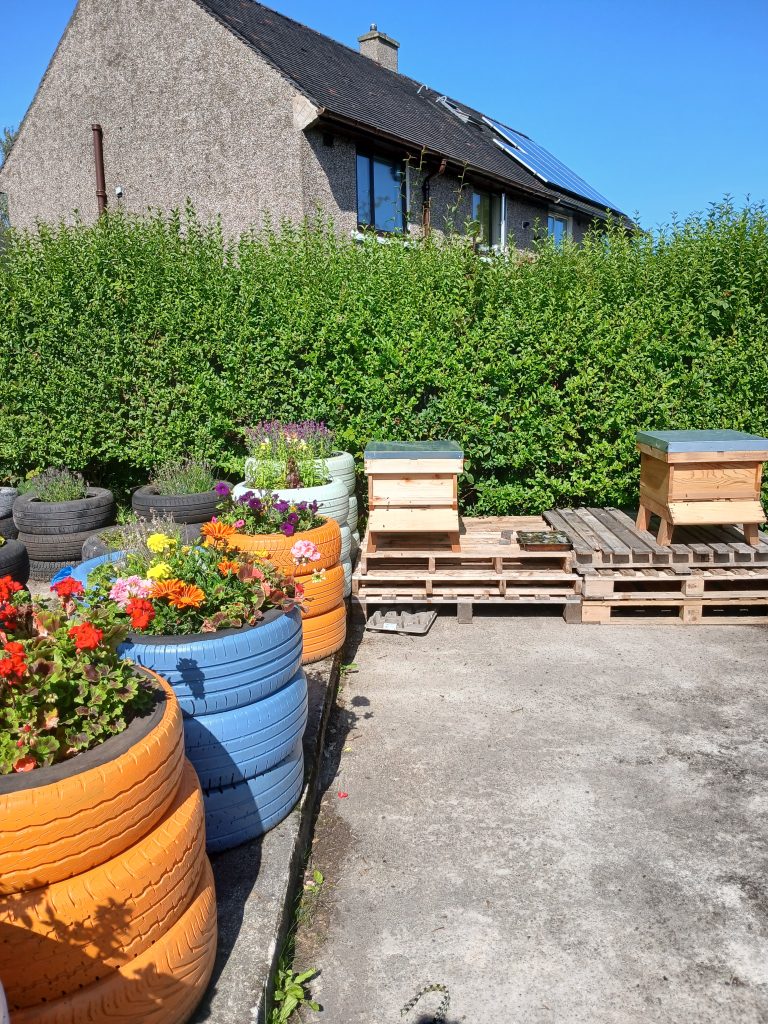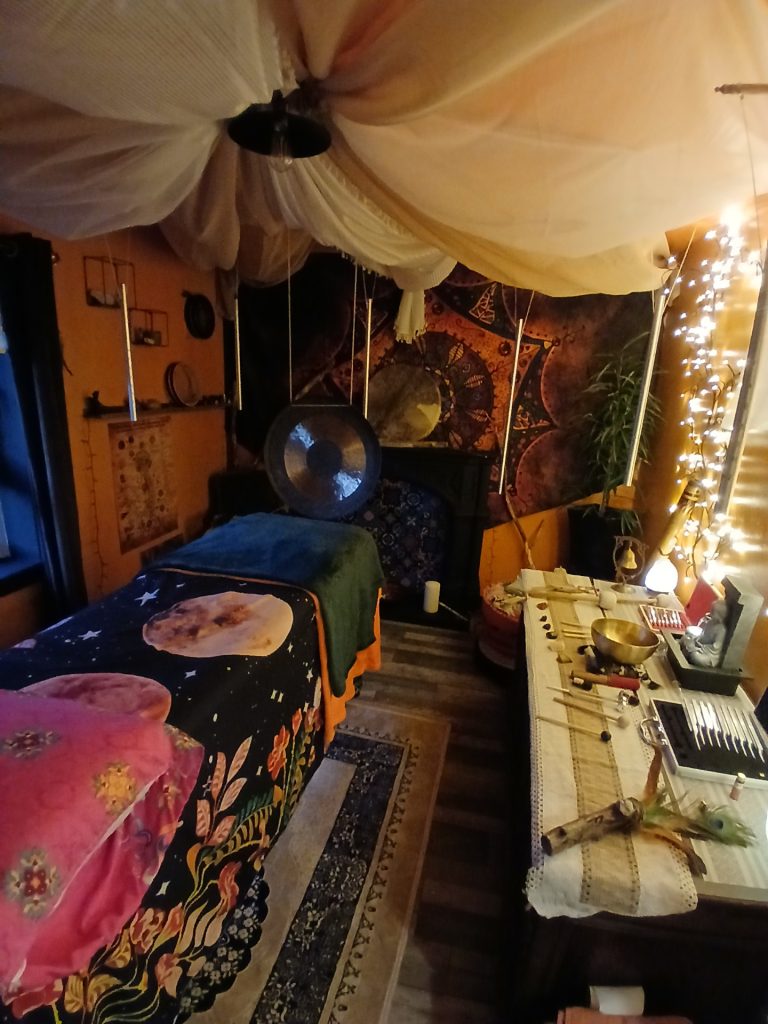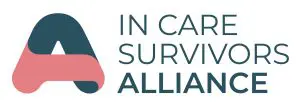Kirsty spent time with bees when she suffered from PTSD (Post-Traumatic Stress Disorder). She found that after only 30 minutes with the bees, she felt very relaxed. She then spent time reading about how bees can help people. She found out that the sound of bees can be helpful to people with PTSD or anxiety and can help to support wellbeing. This is because the bees’ beating wings create a vibration that can have a calming effect.
To find out more about beekeeping, visit www.bbka.org.uk.
“I started meditation, something I found extremely difficult. My panic attacks would result in me being unable to focus on my breathing to get into a meditative state. I persevered and eventually was able to use meditation as a way to calm my mind.
I encourage anyone experiencing difficulties coping in life to try and meditate. Even baby steps are still steps. I can guarantee you will find your peace. You will learn to love yourself and not care what the rest of the world thinks of you, because only your opinion will matter.”


Sound therapy uses vibrations. Kirsty uses instruments like drums or gongs that make powerful vibrations. This means she can feel the vibrations in her body.
‘It opens up the body like a ripple effect of a stone in a pond.’
She also uses something called binaural beats. This is when you listen to two tones with slightly different frequencies at the same time.
“These methods sync both hemispheres of the brain and take you to deeper levels of meditation. This led me into digging further into the science behind frequencies and vibrations. I like to understand the science behind why these methods work.
Seeing fast results, these methods allowed me to meditate and open myself up to the traumas in a calm, non-evasive way. Almost not even knowing that this is what I was doing. I was able to pick away at traumas without even really feeling them. Able to look at them without emotional attachment. Healing myself bit by bit without having to face the enormity of it. I began to really get to know who I was behind all my usual barriers.”
Kirsty wants to create a place where people can try sound therapy, meditation, bee-keeping, or even all three.
“If I can give something back, this is what I want to give back:
“My plan is to start my own business using instruments that create sound waves and vibrations that resonate with the mind and body. To take people through meditations, safely showing them every step of the way how and why to do this. Ensuring that they don’t need more than a couple of treatments maximum so they can take it away, practice it and find what works best for them and show others how to heal themselves.”
Kirsty is also working with Graham Wells who runs GroWiser. GroWiser is a financial coaching service and one of our Delivery Partners. Graham is helping Kirsty think about her business plan.
“He’s more than a financial coach – he’s like a life coach. Not just immense help with finances but also encouraging and cheerleading my ambitions.”

The In Care Survivors Alliance (or ‘Alliance’ for short) delivers two services – Future Pathways and Redress Support Service.
The Alliance is made up of four organisations. These are Glasgow Psychological Trauma Service (NHS Greater Glasgow and Clyde), Health in Mind, Penumbra Mental Health and the Scottish Government.
On the new website, you can find:
We hope you find the new website helpful.
I was determined to get back functioning and active again. I went to physiotherapy. They used to come and get me to go to my appointments. I was ashamed of people seeing me the way I was. People made fun of me.
Eventually, I started doing exercises in the house and I kept on doing them every day. I did butterflies and half butterflies, shadow boxing and knee bends. I did 20 repetitions each, twice a day. This helped with my counting as well.
During this time I was also in recovery from addiction and dealing with lots of personal issues but I kept exercising all the way through. Over time, I was able to use a mobility scooter to get back out and about.
Eventually, after Covid, and when I started with Future Pathways, I also started going to the local Recovery Cafe. We were all talking about the nervous system and how exercise is good for improving it. From there I thought I would give swimming a try.

Then, some friends encouraged me to do a round of golf. I’m now able to hit every single ball. There’s been people encouraging me and I really appreciate that when I look back. I try to encourage other people in recovery to go swimming and to take up golf and other exercise because of how it’s helped me.
I enjoyed doing all of these things but I also wanted to be able to do something on my own. I wanted to go out when I felt like it to exercise and not be dependent on recovery groups, or other groups or other people.
I’d starting thinking about cycling when I got my mobility scooter. Once I felt stronger I bought a bike but I kept falling off because of my balance. I talked to my Support Coordinator at Future Pathways about options for cycling and we thought about a trike/recumbent bike. This is a bike with three wheels that you lean back on instead of sitting upright.
We went through to Edinburgh to try some out… I thought to myself, “this is it, this is what I want, this is what I’d like to do”. It made me feel good, gave me a sense of freedom and enjoyment.


The day I got the bike, I cycled back to the train station on it and my Support Coordinator walked alongside me. I was a bit anxious getting it on to the train. I couldn’t believe it. I really couldn’t believe it. Things like that don’t happen to people like us. Anything good, people usually take it away from you.
On my street on that day, people from my local town were giving me encouragement, smiling and laughing with me. That was different – laughing with me and not at me. People were happy for me. People have told me I’m a miracle. I’ve walked from Bathgate to Whitburn – that’s because of building up my strength on the bike. I want to keep building up my walking too.
The bike has been a godsend. I’ve done over 200 miles on it now. I’ve been to Bathgate and back. Whitburn, Blackburn, Bathgate, Armadale and back to Whitburn. I’ve also been to Harthill from Whitburn, up to Fauldhouse, Longridge and back to Whitburn. When I’m out I see people smile and cars going by give me a wee toot.
My physicality is developing, my confidence has grown and I’m hoping it will grow more. I find it hard to talk to people. I’m practicing this and sometimes the bike helps with having something to talk about when I’m out.
I think it helps with different things and it’s given me ideas for doing more. I’d like to do a Glasgow or Edinburgh cycle to raise money for a parachute jump. It’s got me thinking of what else I can do. I want to get other people into recovery. Maybe even volunteering one day.
I’m looking for contentment and to be stress-free. I’ve been in trouble all my life. The bike puts a smile on everybody’s face – that makes me feel a bit happier as well.
This website uses cookies to improve the site by capturing how it is used. We do not capture personal data. Please click “accept” or “reject” to continue to our site.
Read MoreAccept Cookies Reject